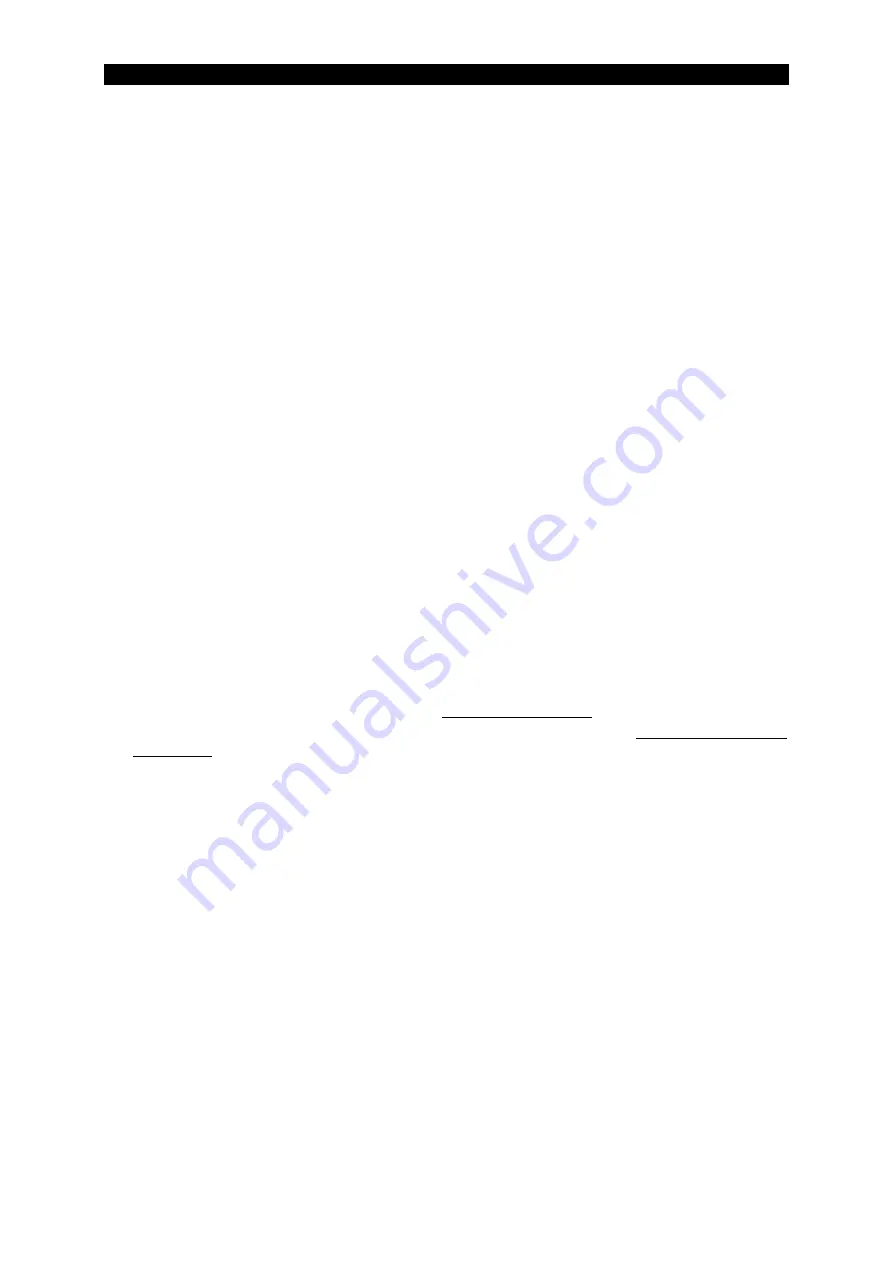
18/20
OPTIONAL ACCESSORIES (CON’T)
INFLATION WHILE SAILING:
When sailing, you can selectively reinflate the buoyancy chamber or the deck.
Inflating the buoyancy chamber, the keel or the small buoyancy chambers:
Remove the plugs from the buoyancy chamber overpressure valves.
Close the deck inflation valve on the quick inflation system. Check that both buoyancy chamber
inflation valves are open.
To reinflate the buoyancy chamber, switch the communication valves to "inflate" position.
To reinflate the keel, also check that the valve for the keel inflation system is open.
To reinflate the small buoyancy chambers, also check that the clips on the communication pipes
between the small buoyancy chambers are open.
Open the valve on the compressed air cylinder.
When one of the buoyancy chamber overpressure valves opens, close the valve on the
compressed air cylinder.
Replace the plugs in the overpressure valves.
Switch the communication valves to sailing position.
Close the valve on the keel inflation system.
Close the clips on the communication pipes between the small buoyancy chambers.
Inflating the deck:
Remove the plug from the deck overpressure valve.
On the quick inflation system, check that both buoyancy chamber inflation valves are closed.
Check that the deck inflation valve is open.
Open the valve on the compressed air cylinder.
When the deck overpressure valve opens, close the valve on the compressed air cylinder.
Replace the plug on the deck overpressure valve.
FOLDING PREPARATION FOR SCUBA AUTOMATIC INFLATION
Once the boat has been deflated and is flat on the ground, the following are instructions to prepare the
boat for automatic inflation by SCUBA:
Assemble the manifold on the bottle (SCUBA)
(1)
do not tighten yet).
Place the bottle in the boats cylinder sheath; inflation head to Starboard
(2)
do not tighten the
sheath yet).
Position hoses, short hose to starboard making a loop so as no to kink it.
Work the inflation bottle in such a way as to eliminate eventual kinks in the inflation hoses.
Place hoses into diffusers and tighten them to the boat, long hose to Port, running inside the
sheath.
Tighten the sheath straps
(2)
to immobilize the bottle.
Tighten manifold
(1)
to the bottle.
Make sure Overpressure caps are off.
Lower buoyancy tube clamps are off.
I/C valves are opened @ the 12:00 o’clock position.
Keel automatic inflation kit is assembled and hoses are well fitted.
Valve caps and valve inserts are placed in the I/C valves and are tight, except for the bow I/C
valve.
Roll-up the boat once around its transom.
Vacuum the remaining air from the boat through the I/C valve left opened in the bow, with a shop-
vac.
This operation takes about 2 minutes and must stop before the boat becomes completely hard
due to too much vacuum.
Turn the I/C valve to 6 o’clock, disconnect the shop vacuum machine, and replace the valve insert
and cap tightly.
Turn this I/C valve to 12 o’clock (only), so as to guarantee air flow in that area of the boat.
Continue to roll the boat up and place in its carrying bag.















































